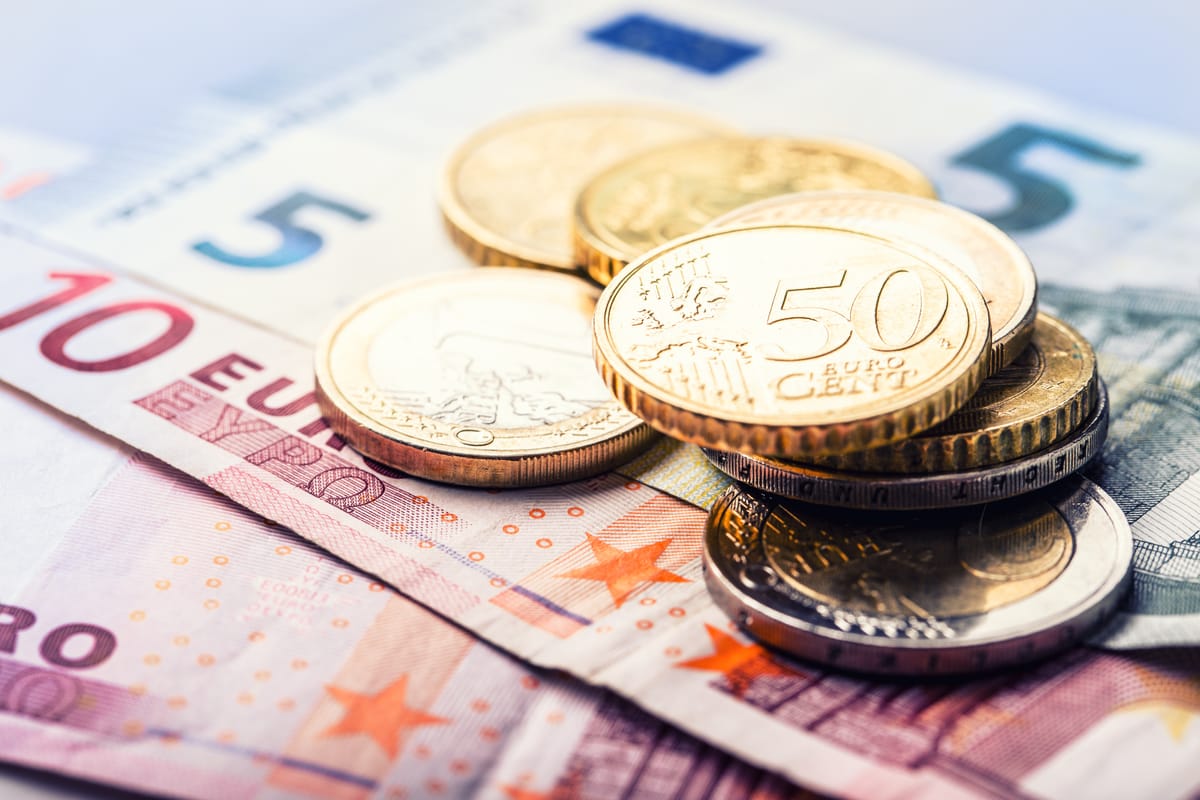GBP/EUR exchange rate week review: pound hits 23-day high versus euro
The pound euro (GBP/EUR) exchange rate broke through the 1.18 benchmark following PMI data that stoked UK economic optimism.

(19/08/2024 to 23/08/2024)
Monday
The pound euro (GBP/EUR) exchange rate traded without a clear direction amid an absence of data from the UK and Eurozone.
The euro was rudderless as the data lull left investors to digest last week’s underwhelming sentiment index and industrial production numbers from the bloc.
Tuesday
Cooling price pressures in Germany in July dented the single currency, causing the pound euro rate to firm slightly to around 1.173.
The euro retraced its losses after the latest consumer prices print from the Eurozone showed inflation in the bloc heated up slightly in July, defying forecasts for a slight dip and tempering European Central Bank (ECB) rate cut expectations.
Speculation the Bank of England (BoE) will adopt a slower monetary policy easing cycle than other major central banks lent the pound some support amid the ongoing UK data lull.
Wednesday
The pound euro rate traversed the lower end of the 1.17 range as markets observed the UK’s latest public sector borrowing total.
The print showed the UK government borrowed £3.1bn last month, significantly surpassing the £1.5bn forecast. Investor sentiment towards the pound subsequently waned amid speculation that the government could be forced to raise taxes and cut spending in the Autumn budget.
The pound’s downside was cushioned by waning investor sentiment towards the euro due to its negative correlation with the dollar, which rose from recent lows, and fresh ECB interest rate cut speculation.
Contact a currency specialist to discover how they can help you take control of exchange rates.
Thursday
The pound euro rate rose sharply to around 1.177 following the release of preliminary PMIs from both the Eurozone and the UK, with the latter supporting hopes that the UK economy is continuing its upward growth trajectory.
The UK’s better-than-forecast print showed the UK manufacturing sector index ticked up to 52.5 in August’s estimates, marking its fastest pace of expansion in two years and surpassing forecasts of 52.1. Activity in the powerhouse services sector increased from 52.5 to 53.3, outstripping market expectations of 52.8.
Better-than-expected services growth across the Eurozone failed to stoke investor interest in the single currency amid concerns the uptick may be short-lived. The vital services sector index rose to 53.3 in August’s preliminary estimates, above market expectations of a second successive print of 52.8. However, activity in the manufacturing sector continued to decline, with the index remaining in contraction territory at 45.6, an eight-month low.
Friday
The pound broke through 1.18 against the euro, hitting a 23-day high, as it continued its upward momentum ahead of a speech by BoE governor Andrew Bailey, before his slightly dovish tone checked its stride.
He said he was “cautiously optimistic” about inflation, but it was “too early to declare victory” after a prolonged period of elevated price rises.
The euro was subdued as expectations of a September interest rate cut from the ECB ramped up. This compounded the previous days PMI figures that reinforced concerns that business activity is stalling across the bloc.
Looking ahead
The UK data lull extends into next week, amplifying the impact of BoE interest rate speculation on the pound.
The German CPI reading for August hits the headlines on Thursday. If, as forecast, inflation cooled slightly in the Eurozone’s largest economy, the euro could be dented by mounting ECB rate cut speculation.
